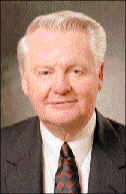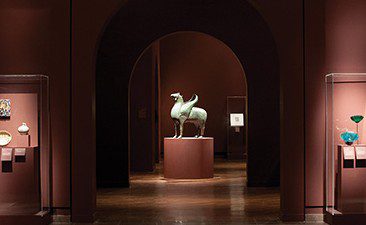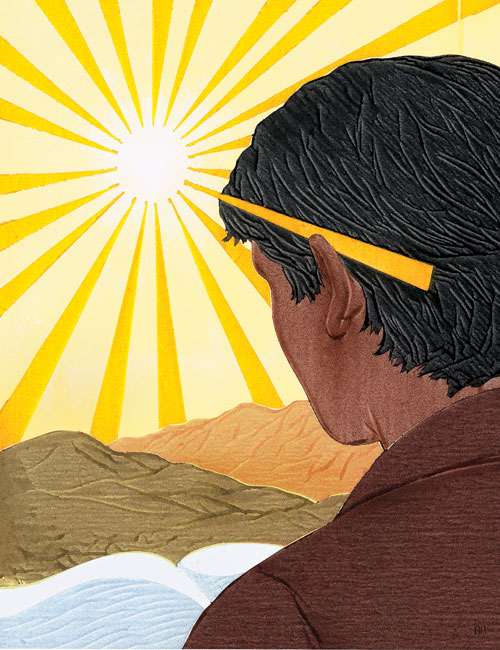Each year some 6,000 freshmen venture onto BYU campus to begin their college experience. They come with enthusiasm, determination, and dreams, but they also often come not knowing a soul and feeling perhaps a little overwhelmed. All of us feel lonely, lost, and weighed down at times. It is not a freshman phenomenon. It is part of life. It is part of the “opposition in all things” (2 Ne. 2:11). By divine design, however, we are not alone. First, Brigham Young University is a family, a family that extends beyond the physical borders of BYU campus. It is an extended community of close friendships, of brothers and sisters who share testimonies and values and who treasure each other. In this regard I was impressed with an article in a recent issue of The Daily Universe. The author is a professor on campus. The article was written about a student friend whose life was taken in a tragic automobile accident a week before. In concluding the article, Jill Terry Rudy, an assistant professor of English, stated:
I hope students can learn from Lindsay to dare to have conversations with their professors. We want to talk with you about our courses, but also about the problems and challenges in your lives, about the big and important decisions you are making, about your hopes and dreams. . . . Together, here and now, we can continue to help each other attain the experiences and learning that will help us fulfill our missions in this life and in the life to come. [Jill Terry Rudy, “Student’s Death Teaches Lessons of Life,”The Daily Universe, Sept. 4, 1997, p. 4]
Given the special nature of this university, there are many friends in our community who will listen, provide counsel, and share hopes and dreams. That attitude of love and caring also exists among BYU alumni and Church members wherever they are found. The community of saints built during one’s years on this campus does not crumble when diplomas are given and friends move away.
Second, there is a special friend who knows us intimately, who stands by us in critical moments, and whose request is that we come to know him and his Father (see John 17:3). He is the Lord Jesus Christ. His sojourn in mortality and his atoning experience provide him with unique insights regarding our challenges, sorrows, and infirmities. As Paul testified, we worship a Savior who has a “feeling of our infirmities” (Heb. 4:15), who has “compassion” for us because he was “compassed with infirmity” (Heb. 5:2). His personal knowledge, his great love, and his atoning powers combine in tailoring his assistance to meet our peculiar needs. To honor the gift of agency, he invites each person to come to him and establish a “one by one” relationship through the Holy Spirit (see John 16:1214; 3 Ne. 11:15, 17:21). There are two passages in the Book of Mormon that clearly illustrate the level of his personal interest.

The Atonement was not only infinite in its expanse but intimate in the lives of God’s children. The Redeemer of the world is acquainted with each person’s infirmities. He knows your problems. He understands your joys as well as your sorrows. Above all, he knows you and knows how and when to help you. – Merrill J. Bateman
During the Savior’s visit to the Nephites in the Western Hemisphere, he told them that he had “drunk out of that bitter cup” (3 Ne. 11:11). He then extended the following invitation to the multitude gathered:
Arise and come forth unto me, that ye may thrust your hands into my side, and…feel the prints of the nails in my hands and…feet, that ye may know that I am the God of Israel, and the God of the whole earth, and have been slain for the sins of the world. [3 Ne. 11:14]
The record indicates that the multitude went forth “one by one until they had all gone forth, and did see with their eyes and did feel with their hands, and did know of a surety” (3 Ne. 11:15; emphasis added). Although the multitude totaled 2,500 souls, the record states that “all of them did see and hear, every man for himself” (3 Ne. 17:25). If each person were given 15 seconds to approach the resurrected Lord, thrust their hand into his side, and feel the prints of the nails, more than 10 hours would be required to complete the process.
The record indicates that later the Savior “took their little children, one by one, and blessed them, and prayed unto the Father for them” (3 Ne.17:21; emphasis added). The scriptures do not indicate how many children were there, but one surmises that in a multitude of 2,500, there must have been a few hundred. Again, it would have taken hours to complete the blessings.
Why did Jesus take the time to invite each individual to feel the wounds in his hands and feet and put their hand into his side? Why did he bless each child rather than give a collective pronouncement? Would the personal touch of his hands and the power of his spirit be more efficacious in a “one by one” relationship? The answer is given by the Savior himself when he said:
And ye see that I have commanded that none of you should go away, but rather have commanded that ye should come unto me, that ye might feel and see; even so shall ye do unto the world. [3 Ne. 18:25]
Suppose you had been in Bountiful that day and experienced a “one by one” relationship with the Savior of the world. You would have fallen at his feet. You, too, would know that he had drunk out of the bitter cup. You would feel some responsibility for the print of the nails in his hands and feet and the wound in his side. You would have seen the engraving of your image in “the palms of [his] hands” (1 Ne. 21:16). On occasion, speakers note that the impact of his appearance produced a season of peace that lasted 200 years. The truth is that his appearance and teachings had an eternal impact on the lives of those present and for generations to come.
For many years I believed that the atoning process involved an infinite mass of sin being heaped upon the Savior. As I have become more familiar with the scriptures, my view of the Atonement has expanded. The Atonement involved more than an infinite mass of sin; it entailed an infinite stream of individuals with their specific needs. Alma records that Jesus took upon himself the pains, afflictions, temptations, and sicknesses of his people. In addition, he experienced their weaknesses so that he would know how to help them (see Alma 7:1112). Isaiah prophesied that the Lord would bear “our griefs, and [carry] our sorrows”; that he would be “wounded for our transgressions” and “bruised for our iniquities” (Isa. 53:45). Paul explained to the Hebrews that Jesus tasted “death for every man” and woman (Heb. 2:9). No wonder “his sweat was as it were great drops of blood” coming from “every pore” (Luke 22:44, D&C 19:18).
Brothers and sisters, the Atonement was not only infinite in its expanse but intimate in the lives of God’s children. The Redeemer of the world is acquainted with each person’s infirmities. He knows your problems. He understands your joys as well as your sorrows. He knows the nature of the temptations that beset you and how they interface with your weaknesses. Above all, he knows you and knows how and when to help you.
As Jesus knows us and loves us, so should we love and respect others. Nephi states that the Lord invites “all to come unto him and partake of his goodness; and he [denies] none that come…black and white, bond and free, male and female” (2 Ne. 26:33).
The extended BYU community includes people in all 50 states and in more than 100 countries. Represented are cultures and subcultures, races and religions–a rich milieu. There is much we can learn from one another. A distinguishing feature of BYU is that we care about each other, “black and white, bond and free, male and female.” Visitors to campus immediately notice a difference; our extended community of saints should offer the same difference. That difference comes because we have respect for each person, “for there is no respect of persons with God” (Rom. 2:11). The Master does not hold one of us above the rest. He loves each man and woman and asks us to do the same. The prophet Alma asked the following question:
Is there one among you that doth make a mock of his brother [or sister], or that heapeth upon him persecutions?
Wo unto such an one, for he is not prepared, and the time is at hand that he must repent or he cannot be saved! [Alma 5:3031]
We ask men and women to honor each other. Each woman and man “has the right and the responsibility to direct her [or his] own life” (Spencer W. Kimball, My Beloved Sisters [Salt Lake City: Deseret Book Company, 1979], p. 23). Each person is of infinite worth as measured by the plan of mercy. Christ suffered for and experienced the pains of “every living creature,…men, women, and children” (2 Ne. 9:21).
May each of us accept the Savior’s invitation to approach him and to spiritually see and feel the wounds in his hands, feet, and side. May we exercise faith in him as the Redeemer of the world. May we honor him by loving one another as he love us, thereby broadening his influence, as well as that of our community of saints, one by one throughout the world.
This article is adapted from a devotional address given Sept. 9, 1997, in the Marriott Center.









